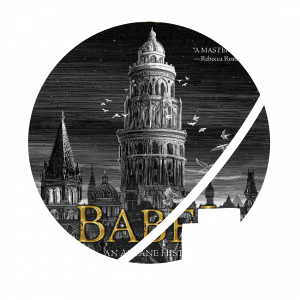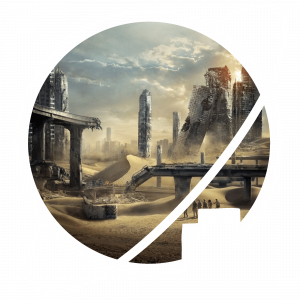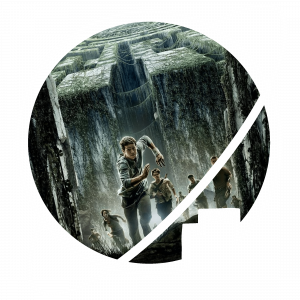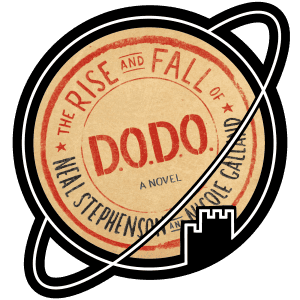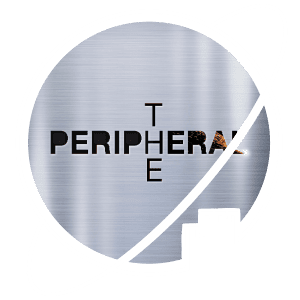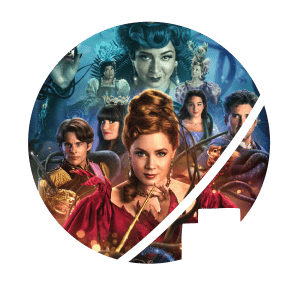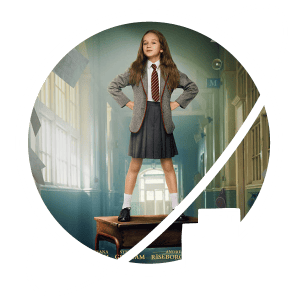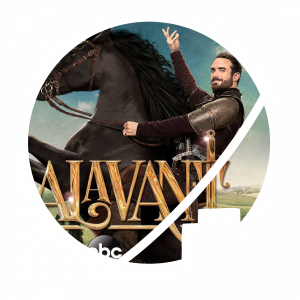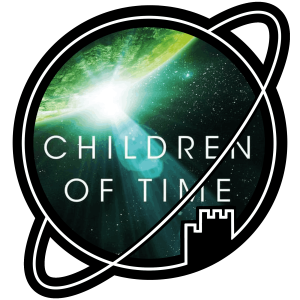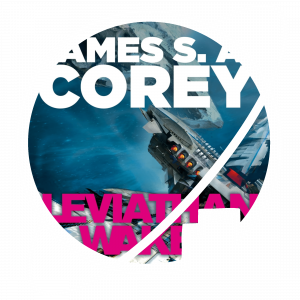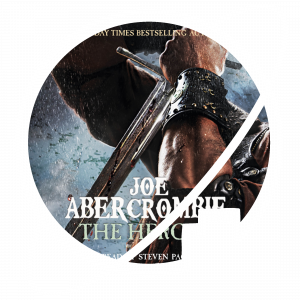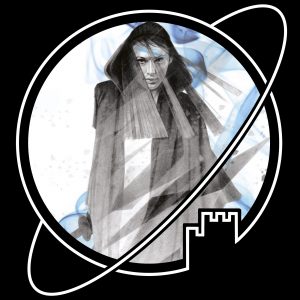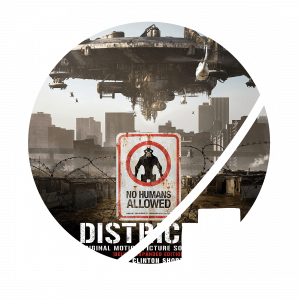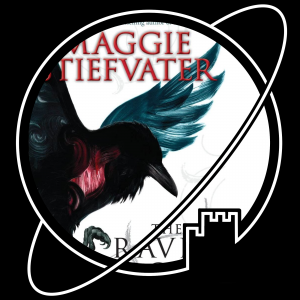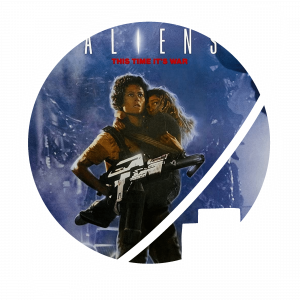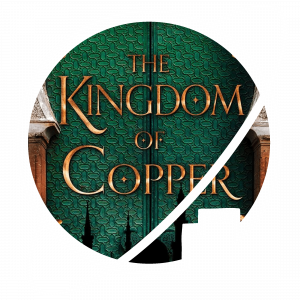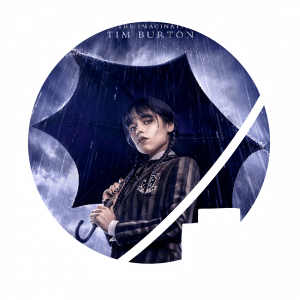Welcome to the Escape Velocity Collection!
We are an opinionated group of friends reviewing all sorts of fantasy and science fiction media. Don’t forget to get to know the curators and visit our curated Collection, where we discuss the stories that never cease to transport us to another world.
Will you escape with us?
LATEST POSTS:
- Novel written by R.F. Kuang
- Published 16 May 2023
- Standalone


Listened to the audiobook with Helen Laser. Well-read.
I know this is website is supposed to review speculative media. Last week’s Kindred was kind of cheating, though it is arguable that that is portal fantasy. Yellowface, though, is definitely cheating. The only reason I’m uploading it anyway is because it is written by an author that also writes fantasy.
So, if Yellowface is not a fantasy book then what is it?
Yellowface is a book about authorship and plagiarism, about lying to yourself and starting to believe your own lies, about race and perceptions of race. And it is also an absolute page turner. I finished the 9-hour audiobook in less than a weekend because I was actively looking for things to do that I could combine with listening. Sure, I’ll go for another run! Sure, I’ll clean the kitchen!
The book’s hook – one author stealing another’s manuscript – is good, but what makes this book so interesting is that Kuang uses the premise to write a scathing satire on the publishing industry. In particular, she explores tokenism and racial attitudes, the idea that certain stories can only be told by certain people, and the idea that a certain descent can be a advantage or a disadvantage in publishing.
I don’t view myself as particularly well placed to contribute to the debate on race and representation in media, but I can see that there are extremes on either end of the spectrum that might be worth satirising. Kuang certainly takes a position, but she does so with subtlety, provoking thoughts rather than sparking outrage.
Yellowface is told by and focusses on June Hayworth/Juniper Song, who is both the story’s main villain and protagonist. Even though the premise of Yellowface isn’t exactly close to my own experience of life, Kuang does an impressive job of making June a character I could empathise with. So good, in fact, that I found that I had to remind myself a couple of times of who actually was the perpetrator and who was the victim in this story.
The one thing that takes Yellowface from 5 to four-and-a-half stars is that Kuang – like her fictional June Hayworth – seems to struggle just a little with how to wrap up the story. With how good this book is, though, I didn’t mind at all.
Overall, Yellowface is one of the best books I’ve read recently, and I heartily recommend it: it is a literary book without pretence, and if you recommend it to your non-speculative fiction-loving friends, it might serve as a gateway to Kuang’s other work!
Tagged:
See also:
- Movie directed by Francis Lawrence
- Starring Tom Blyth, Rachel Zegler, Hunter Schafer, Jason Schwartzman, Peter Dinklage, Josh Andrés Rivera and Viola Davis
- Released in November, 2023
- Runtime: 157 minutes


I was expecting this movie to impress me a bit more, with how much attention it got. I’ll say this: The Hunger Games is really popular again, and I’m not sure why. I’m all for nostalgia, but the world was different when the original Hunger Games trilogy came out. Aren’t things bad enough in the real world at this point?
That said, I enjoyed this movie – sort of in the way that one can enjoy cheap cookies. There’s a lot missing, but if there’s sugar in it, I’ll bite.
In this case, the “sugar” comes mostly from my familiarity with the world of the Hunger Games. The overall production value is amazing, but that’s only to be expected for a movie of this scope. I keep trying to think of other good qualities of this movie but I genuinely can’t!
I’m pretty sure everything I didn’t like about the movie could have been fixed by fixing the pacing. This movie is TWO AND A HALF HOURS long. At one point I expected the movie to be nearing the end, only to realise I wasn’t even at the halfway point. In a world where everything seems to need a sequel, I’m baffled by the choice to turn this into a single movie instead of splitting it up into two movies. You could have the first movie be about the Hunger Games, and the second movie be about the events after the Hunger Games. This way, both stories could have been developed further. The romance would have worked better, and the events of the second half would have gotten more time to breathe, making the ending feel way less rushed.
The characters didn’t really do very much for me. Lucy Gray felt pretty two-dimensional, and Coriolanus Snow didn’t have much going on other than being an ambitious but overall good guy. Of course, he ends up as the Big Bad of the Hunger Games, but despite this movie being about him and his rise to power, we never really get the sense of him having the potential to be a ruthless dictator until the very end.
There’s quite a bit of singing in this movie, as being a performer is Lucy Gray’s whole thing. While I’m a big fan of musicals, the singing in this movie doesn’t quite work for me. I think you can really only go for the full musical route if singing is such an important part of your character’s arc. Anything less than that is just kinda cringe and won’t work.
I may end up reading the book to see if the pacing issues are purely a result of the adaptation to the big screen. I just don’t get how in a world where they turned The Hobbit into a trilogy, they decided to stuff this much material into one movie!
Tagged:
See also:
- Novella written by Octavia E. Butler
- Published in June 1979
- Standalone


Listened to the audiobook with Kim Staunton – well read.
Octavia Butler herself named Kindred a fantasy story, but honestly it feels a little like cheating to upload a review of a novel like Kindred to our fantasy- and sci-fi-dedicated website.
Sure, the main character Dana travels through a portal to a past time and a different place, but that is no more than a contrivance to tell the story of a black woman from 1976 trying to survive at a plantation worked by enslaved persons in 1815.
That story is told expertly, though.
The introduction of a more-or-less present day character in such a different time gives Butler plenty of opportunity to confront the reader with just how different – and terrible – that time was. Because Dana is sometimes and outsider, Butler gets to reflect on some events at some distance. But as Dana spends more time in the past, she gradually get roped into the lives of the characters there and she experiences the harsh reality of being a black person on a plantation.
I’m no expert on 19th century American history, but I don’t get the impression that Butler held back much in her portrayal of the practice of slavery. I am sure she could have described much worse conditions without becoming unrealistic. But even if the Weylin plantation is not a representation of the very worst place to be as an enslaved person in America in 1815, Kindred can be difficult to read at times. It probably should be: I think Kindred has great educational value that way.
Kindred does not have a particularly special plot, and none of the time portal stuff is ever really explained. But it is thought provoking and has great characters, deep emotions, and a gripping story. And we have to give it to Butler: the why and how of the time portal might never be explained, but in true speculative fiction fashion, she does explain the rules of triggering it, meaning it never feels random.
I don’t have that much to say about Kindred as a work of speculative fiction – really, it is a literary historical fiction novel cosplaying as fantasy, and I don’t really feel qualified to comment on it from a literary perspective.
What I can say, though, is that I enjoyed the novel. It is not exactly a fun read, but it gripped me, and I hope it will grip you too.
Tagged:
See also:
- Series created by Cinco Paul and Ken Daurio
- Starring Cecily Strong, Keegan-Michael Key, Kristin Chenoweth, Alan Cumming, Ariana DeBose, Dove Cameron, Aaron Tveit and others
- Released on July 16, 2021
- 2 seasons with 6 episodes each

For a short while, I had access to one of the million streaming services that are floating around nowadays: Apple TV. This allowed me to watch fantasy and science fiction hits such as Wolfwalkers and Severance (as well as the less speculative Ted Lasso). However, to the joy of our inner musical fanatics, Jasmijn and I also stumbled upon Schmigadoon!, a musical comedy series, a genre that’s far too uncommon if you ask me. Is Schmigadoon! also speculative fiction? Well, hardly. Luckily, due to a technicality we can interpret it as a portal fantasy, allowing me to write a review without any qualms of conscience!
The two modern day main characters of Schmigadoon! are struggling in their relationship and suddenly find themselves stranded in a realm where people can burst into song and dance while conveying their deepest emotions and thoughts. One of the main characters (Cecily Strong) is familiar with musicals and can relate, while the other (Keegan-Michael Key) loathes it. Still, they’ll need each other and the inhabitants of this musical realm to eventually find their way home.
As you can imagine from the premise, Schmigadoon! is both a homage and satire to the musical genre on the whole and some of the most famous musicals in history. They manage this with a lot of self-referential humour and even a few surprisingly touching emotional arcs (though you shouldn’t expect a deep dive into the nuances and repercussions of these emotions). I can really appreciate how the writers and actors took fairly common archetypes and tropes, yet still managed to portray them in fresh ways.
Ultimately, I suppose Schmigadoon! still has more charm to those who love musicals than those who don’t. But if you do love musicals… oh boy. You’ll be spoiled with clever parodies of famous songs and the performances of musical veterans such as Ariana DeBose, Aaron Tveit, Kristin Chenoweth, Patrick Page and many others. Certainly a recommendation, if you ask me. And that leaves me with nothing clever left to say, but: “Flooby wabba noody, Rizzo, Cha Cha, Doody, Flooby nooby wicky, Zuko ‘n Kenickie”.
- Novel written by Adrian Tchaikovsky
- Published 26 March 2024
- Standalone


Listened to the audiobook with Ben Allen. Very well read.
Before you read the rest of my review – I just read it back and I realise it comes of very negative. Please don’t walk away from this thinking reading Alien Clay is a waste of time – I did enjoy reading it and I would recommend it – it is not particularly long, well paced and it has some fascinating alien biology that really sets it apart.
However, I think my review below very clearly shows that that I felt a little disappointed with the potential that I think Tchaikovsky ‘wasted’ when he used his biological knowledge and premise on a quick novel that is just lacking a little in depth beyond it.
I couldn’t shake the impression though that Alien Clay was a bit rushed, particularly in the worldbuilding and the resolution. That might just be a style thing – I don’t think that Tchaikovsky would have wanted to elaborate on the background of his story. But I felt like Alien Clay was brimming with interesting ideas that were stretched over a really thin plot and supported with bare bones worldbuilding.
First, the plot of Alien Clay is really about as simple as it gets, not bad but hardly worth discussing. More interesting is the worldbuilding.
When I say that Alien Clay has ‘bare bones worldbuilding’, I am not necessarily referring to the biology of Kiln, the planet that is effectively the main character of this book. I think the premise – evolution not through competition but symbiosis – is great. I love that the biology Tchaikovsky presents actually feels alien, which is a feat surprisingly few science fiction writers manage.
What is missing though, is the background on the human landscape. Tchaikovsky does some cursory work on the repressive and scientifically regressive regime on earth, but I think the novel would have benefited from more details on the characters’ lives back home. I liked his description of the between-fear-and-hope atmosphere in the scientific community in earth and I think it was worth spending some time on. I also felt like our main character didn’t actually live a life on his home planet.
Moreover, there is an episode halfway through the novel that Tchaikovsky seems to have just given up on – he skipped forward, gave a couple of anecdotes from that time in between, and moved straight to the final face off.
While I agree that the novel would not have necessarily improved from describing that one particular event in detail from start to finish, I feel like the way Tchaikovsky choose to work around it was representative of the issues that I have with Alien Clay. I feel those might have been ironed out with the input of a good editor.
Finally, the ending of the novel was a little predictable – in particular when viewed in line with Tchaikovsky’s other work (’humans need something inhuman to improve upon themselves’). It wasn’t helped, of course, by the lack of depth in the characters themselves or the de-individualisation that he puts them through. I think it underlines that Tchaikovsky simply wasn’t interesting in writing a particularly engaging plot or characters.
In the end, I switched off Alien Clay when it finished, wondering whether it would not have been better off as a novella.
In short: great ideas, great execution in one aspect, just a little lacklustre in others – still worth reading.
- Novel written by Joe Abercrombie
- Published 16 July 2015
- Part 3 of the Shattered Sea Trilogy


Listened to the audiobook with Ben Elliot. Well narrated.
I think I started Half a War the same day that I finished Half the World. I blasted through the entire trilogy in just over two weeks of listening. Perhaps that is all the review you need. If you want to learn a little more… read on.
Half a War surprisingly feels more like a sequel to Half a King than to Half the World.
The plot of Half a War has a bigger scope than the previous instalments, focussing on war and politics and not following the somewhat predictable Hero’s Journey that I noticed in the first two novels.
Like Half the World before it, Half a War introduces a new cast of characters and folds them into the ongoing narrative with the characters the reader already knows. In the case of Half a War, though the build up of characters throughout the trilogy means that there is not enough space in the novel for each of them to take their moment in the limelight.
An unfortunate victim of this is Thorn Batu, the protagonist of Half the World. One character that does shift back into focus, however, is Father Yarvi, our protagonist from Half a King.
There are a couple of scenes early in Half a King that gave me premonition of where Yarvi’s character might be headed, and I am glad that Abercrombie zooms back in on him for this final book in the trilogy, even if it is still through the eyes of other characters.
Despite the bigger scope and the amount of characters, there just about enough room for the main character’s development. Skara’s line is the strongest in the book and the one that makes it worth reading. I will not say that it is full of surprises, especially if you have read a little of Abercrombie’s work before – but it is satisfying enough to wrap the trilogy nicely.
If there is one aspect of this trilogy I would have liked to see Abercrombie do differently, it is the post-apocalyptic elements.
Sure, they do play a bigger role in Half a War than in the previous instalments, but in the end, the pre-apocalyptic technology basically takes the place of magic and provides an unearned resolution to the main characters’ central challenge. There is no significance to the fact that the world is our world. Having read the whole trilogy, I cannot help but feel that Abercrombie could have saved that idea for a story that put a little more emphasis on it.
So what is my final verdict on the trilogy? I enjoyed all three books. They were quick and easy reads, not burdened by too much build up or worldbuilding. The Shattered Sea Trilogy are unpretentious adventure fantasy novels that are far enough off the beaten track to not be forgettable. You would not be remiss giving them a shot if you are looking for something a little simpler, but still expertly crafted. On the other hand, the Shattered Sea Trilogy does not have the depth – either in character, worldbuilding or plot – to truly captivate a regular reader of fantasy.
One thing I will take away from reading this trilogy – other than the hours of entertainment the novels gave me – is that the perfect balance between pacing and depth that I like is difficult to find. Looking just at Abercrombie, I think the First Law Trilogy has great depth, but is very slow out of the gate. The Shattered Sea Trilogy is very well-paced with not a slow page in it, but lacks somewhat in those extra layers that will truly immerse a reader. I think Abercrombie strikes the best balance in Best Served Cold and The Heroes, though there is some cheating there since the First Law Trilogy has already done a lot of set up for the world they take place in. Food for thought.
Tagged:
See also:

Review: Yellowface – R.F. Kuang
June Hayworth is a struggling author. Her Asian-American friend Athena Liu, on the other hand, is a critically acclaimed and commercially successful industry darling. One day, Athena dies in a freak incident while hanging out with June at Athena’s apartment. June takes a manuscript on Chinese labourers in the First World War from Athena’s apartment and publishes it under a pseudonym suggesting Asian descent. Over time, the lies she built up around the manuscript start to completely control June’s life.

Review: The Ballad of Songbirds and Snakes – Lionsgate
Decades before Katniss Everdeen even volunteered as tribute, president Coriolanus Snow is a promising young student selected to mentor one of the tributes during the annual Hunger Games. His mentee is Lucy Gray Baird, a young woman who is as feisty as she is musical. Could Lucy Gray possibly win the games?
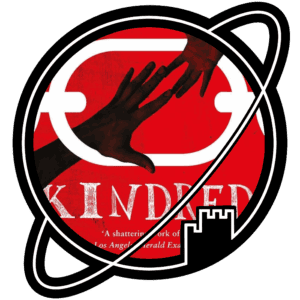
Review: Kindred – Octavia E. Butler
Dana is whisked from 1976 Los Angeles to 1815 Maryland, where she saves a little boy from drowning before returning to her own time. But before she has much time to process what happened, it happens again. As a black woman, Dana must learn to survive on a plantation alongside the other enslaved black persons there, while she develops a special relationship with the boy she saves over and over.

Review: Schmigadoon! – Apple TV+
New York doctors Melissa and Josh instantly fell in love when they first met, but recently find themselves in a relationship crisis. A backpacking trip brings them to the peculiar village of Schmigadoon, where they soon discover that the key to the way home has something to do with music and true love…

Review: Alien Clay – Adrian Tchaikovsky
Prof. Arton Daghdev, expert in alien biology, is exiled to a labour camp on the distant world of Kiln for his crimes against the scientific orthodoxy of the Mandate. His exile is as much a punishment as it is an opportunity: to actually study the complex and utterly alien ecosystem of Kiln up close is a dream come true. But the science is hampered by the confines set by the Mandate on the truths that may be discovered – and the life expectancy of a labourer in the camp on Kiln is terrifyingly low…
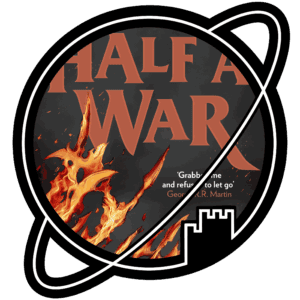
Review: Half a War – Joe Abercrombie
Skara, princess of Throvenland, narrowly escapes the clutches of Bright Yilling, sent to kill her family and take Throvenland for the High King. See flees to Gettland to beg King Uthil and his ally Grom-gil-Gorm to honour their word and set Throvenland free – but even if they do, what place can Skara and Throvenland take in the alliance, and can they withstand the might of the High King’s armies? Meanwhile, Raith, Grom-gil-Gorm’s cupbearer, is assigned to guard Skara – but that role swiftly turns out to be a cover for something else.










